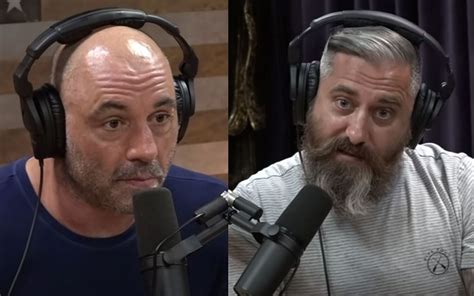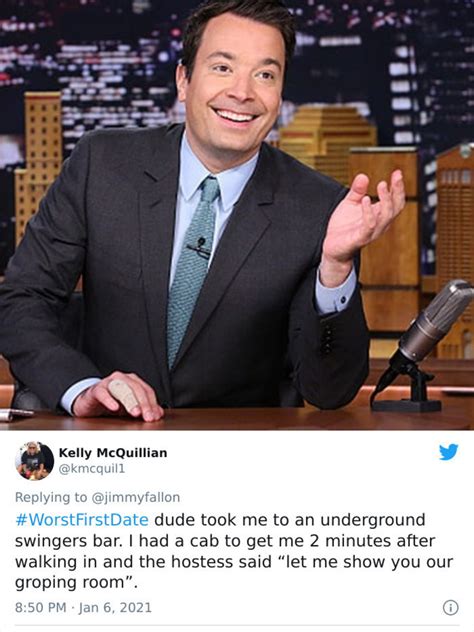
Joe Rogan has labeled a recent guest on his immensely popular podcast, “The Joe Rogan Experience,” as his “worst ever,” identifying the individual as Dr. Rhonda Patrick, a biomedical scientist known for her expertise in nutrition and aging. Despite Patrick’s credentials, Rogan expressed dissatisfaction with the flow of their conversation, citing a lack of engaging back-and-forth and a general sense of disconnect.
Rogan’s candid assessment came during a recent episode of his podcast, where he reflected on past interviews and discussed the dynamics that contribute to a successful conversation. He emphasized the importance of a natural rapport and the ability of guests to articulate complex information in an accessible manner. While acknowledging Patrick’s intelligence and knowledge, Rogan indicated that the episode failed to meet his standards for engaging content.
The podcast episode featuring Dr. Rhonda Patrick was originally intended to delve into topics such as the benefits of sauna use, the impact of specific nutrients on brain health, and the latest research in longevity. However, Rogan felt that the discussion remained too technical and lacked the personal anecdotes and conversational tangents that typically characterize his interviews.
“Sometimes you just don’t click with somebody,” Rogan stated. “It doesn’t matter how smart they are or how knowledgeable they are. If you don’t have that natural chemistry, the conversation can feel forced and unnatural.” He further clarified that his assessment was not a reflection of Patrick’s expertise but rather a commentary on the overall dynamic of the interview.
This incident has sparked considerable discussion within the podcasting community and among Rogan’s vast listenership. While some have criticized Rogan for being overly harsh, others have defended his right to express his opinion and maintain his standards for the quality of his content. The controversy also raises questions about the challenges of conducting engaging interviews with experts in highly specialized fields.
Dr. Rhonda Patrick has yet to publicly respond to Rogan’s comments. However, her previous appearances on other podcasts and her extensive body of work suggest a dedication to disseminating scientific information to a wider audience. It remains to be seen whether this incident will affect her future collaborations with other media outlets or her approach to communicating complex scientific concepts.
The Joe Rogan Experience is one of the most influential podcasts in the world, known for its long-form interviews and wide-ranging discussions. Rogan’s ability to attract high-profile guests from various fields, including science, entertainment, and politics, has contributed to its immense popularity. His willingness to express his opinions, even when controversial, has also made him a polarizing figure.
The incident with Dr. Rhonda Patrick underscores the subjective nature of interviews and the importance of chemistry between the host and the guest. While expertise and knowledge are valuable assets, the ability to engage in a natural and flowing conversation is often crucial for creating compelling content.
Expanded Details and Context:
Joe Rogan’s podcast, “The Joe Rogan Experience,” has become a cultural phenomenon, largely due to its unscripted, long-form conversations with a diverse range of guests. Rogan’s style is often characterized by his willingness to delve into complex topics with a layman’s curiosity, inviting experts from various fields to share their knowledge and perspectives. This approach has made the podcast accessible to a broad audience, attracting millions of listeners and viewers.
However, Rogan’s candid and sometimes unfiltered commentary has also made him a subject of controversy. His willingness to express his opinions on sensitive issues, such as politics, science, and culture, has drawn both praise and criticism. In the case of Dr. Rhonda Patrick, Rogan’s assessment of their interview has ignited a debate about the expectations placed on podcast guests and the dynamics that contribute to a successful conversation.
Dr. Rhonda Patrick is a highly respected biomedical scientist with a Ph.D. in biomedical science from the University of Tennessee Health Science Center in Memphis, TN, and a Bachelor of Science degree in biochemistry/chemistry from the University of California, San Diego. She is widely known for her research on the role of micronutrients in health, aging, and disease prevention. Her work has been published in numerous scientific journals, and she has also gained a significant following through her website, FoundMyFitness, where she shares evidence-based information on nutrition and health.
Patrick’s expertise lies in translating complex scientific concepts into accessible information for the general public. She has a knack for explaining the mechanisms of action of various nutrients and lifestyle interventions, such as sauna use, exercise, and dietary modifications. Her goal is to empower individuals to make informed decisions about their health and well-being.
Despite her qualifications and experience, Rogan felt that their conversation lacked the spark and spontaneity that he typically seeks in his interviews. He acknowledged that Patrick is “incredibly intelligent” and “knows her stuff,” but he felt that the interview remained too technical and failed to connect with his audience on a personal level.
“It’s not about her,” Rogan clarified. “It’s about the dynamic of the conversation. Sometimes you just don’t mesh with someone, no matter how smart they are. It’s like trying to force two magnets together that are repelling each other.”
Rogan’s comments highlight the challenges of conducting engaging interviews with experts in highly specialized fields. While it’s important to maintain accuracy and avoid oversimplification, it’s also crucial to present information in a way that is accessible and relatable to a general audience. This requires a delicate balance between expertise and communication skills.
The incident also raises questions about the expectations placed on podcast guests. While some guests may be comfortable engaging in casual banter and sharing personal anecdotes, others may prefer to stick to the facts and present their information in a more formal manner. It’s up to the interviewer to adapt their style to the guest’s preferences and create an environment that is conducive to a productive conversation.
In the case of Dr. Rhonda Patrick, it’s possible that her expertise in scientific research led her to focus on the technical aspects of the topics discussed, rather than engaging in the more personal and anecdotal style that Rogan prefers. This is not necessarily a reflection of her communication skills, but rather a difference in approach and style.
The controversy surrounding Rogan’s comments has also sparked a broader discussion about the role of criticism in the podcasting world. While it’s important for content creators to receive feedback and constructive criticism, it’s also important to avoid being overly harsh or dismissive. Rogan’s comments, while candid, may have been perceived as disrespectful to Dr. Rhonda Patrick, particularly given her expertise and contributions to the field of biomedical science.
However, Rogan has also defended his right to express his opinion and maintain his standards for the quality of his content. He argues that his listeners expect him to be honest and transparent, even if it means expressing unpopular or controversial opinions. This willingness to be himself, even when it’s not always politically correct, is one of the reasons why his podcast has become so popular.
The incident with Dr. Rhonda Patrick serves as a reminder of the subjective nature of interviews and the importance of chemistry between the host and the guest. While expertise and knowledge are valuable assets, the ability to engage in a natural and flowing conversation is often crucial for creating compelling content. It also highlights the challenges of balancing accuracy and accessibility when communicating complex scientific information to a general audience.
Ultimately, the success of an interview depends on a variety of factors, including the skills and experience of the interviewer, the expertise and communication style of the guest, and the overall dynamic of the conversation. While it’s not always possible to predict whether an interview will be successful, it’s important to approach each conversation with an open mind and a willingness to adapt to the unique challenges that each guest presents.
Rogan’s “worst ever” comment, while controversial, has undoubtedly generated significant attention and discussion. Whether it will have a lasting impact on his podcast or Dr. Rhonda Patrick’s career remains to be seen. However, it serves as a valuable reminder of the complexities and nuances of human communication and the challenges of creating compelling content in the digital age. The incident also highlights the intense scrutiny that public figures face and the importance of being mindful of the potential impact of their words.
In the aftermath of Rogan’s comments, many listeners have revisited the episode featuring Dr. Rhonda Patrick to form their own opinions. Some have agreed with Rogan’s assessment, finding the conversation to be dry and technical. Others have defended Patrick, arguing that her expertise and knowledge were valuable and that Rogan’s expectations were unrealistic. This diverse range of opinions underscores the subjective nature of listening experiences and the challenges of pleasing everyone in a large audience.
The controversy has also prompted discussions about the responsibility of podcast hosts to create a welcoming and inclusive environment for their guests. While Rogan is known for his candid and sometimes confrontational style, some have argued that he should be more mindful of the potential impact of his words on his guests, particularly those who are experts in their fields. Others have defended Rogan’s right to express his opinions and maintain his standards for the quality of his content, arguing that his honesty and transparency are what make his podcast so appealing.
The incident with Dr. Rhonda Patrick also raises questions about the role of expertise in the podcasting world. While it’s important to invite experts to share their knowledge and perspectives, it’s also crucial to ensure that they are able to communicate their ideas in a way that is accessible and engaging to a general audience. This requires a delicate balance between expertise and communication skills, and it’s up to the podcast host to facilitate this process.
Ultimately, the controversy surrounding Rogan’s comments serves as a reminder of the complexities and nuances of human communication and the challenges of creating compelling content in the digital age. It also highlights the importance of being mindful of the potential impact of one’s words and the responsibility of podcast hosts to create a welcoming and inclusive environment for their guests.
The situation underscores the power of Rogan’s platform. His opinions carry significant weight, and his comments can have a ripple effect throughout the podcasting community and beyond. This power comes with a responsibility to be thoughtful and considerate in his assessments, even when expressing personal preferences.
Furthermore, the incident raises questions about the very nature of podcasting as a medium. Is it primarily entertainment, or does it have a responsibility to educate and inform? Rogan’s podcast often blurs the lines between these two, and the controversy surrounding Dr. Rhonda Patrick highlights the tension that can arise when these goals conflict.
The long-term effects of this incident remain to be seen. It’s possible that it will lead to a greater awareness of the challenges of conducting engaging interviews with experts in specialized fields. It may also prompt podcast hosts to be more mindful of the potential impact of their words on their guests. Ultimately, the incident serves as a valuable learning experience for both Rogan and the podcasting community as a whole.
The incident also brings to light the different expectations audiences have of podcasts. Some listeners tune in for pure entertainment, seeking lighthearted conversations and humorous anecdotes. Others are looking for in-depth discussions and expert analysis. Rogan’s podcast attempts to cater to both of these audiences, but the Dr. Rhonda Patrick episode suggests that it’s not always possible to satisfy everyone.
The value of scientific communication is also highlighted by this incident. Experts like Dr. Patrick play a vital role in translating complex research into accessible information for the public. However, the challenges of this task are evident in the different perspectives on the interview. Finding the right balance between accuracy and engagement is crucial for effective scientific communication.
Frequently Asked Questions (FAQ):
1. Why did Joe Rogan call Dr. Rhonda Patrick his “worst ever” guest?
Joe Rogan stated that the conversation with Dr. Rhonda Patrick lacked the natural chemistry and engaging back-and-forth that he typically seeks in his interviews. He felt the discussion remained too technical and didn’t connect with his audience on a personal level, despite acknowledging her intelligence and expertise. He said, “Sometimes you just don’t click with somebody. It doesn’t matter how smart they are or how knowledgeable they are. If you don’t have that natural chemistry, the conversation can feel forced and unnatural.”
2. Who is Dr. Rhonda Patrick?
Dr. Rhonda Patrick is a biomedical scientist with a Ph.D. in biomedical science. She is known for her research on nutrition, aging, and disease prevention, and for translating complex scientific concepts into accessible information for the general public through her website, FoundMyFitness.
3. Has Dr. Rhonda Patrick responded to Joe Rogan’s comments?
As of the latest reports, Dr. Rhonda Patrick has not publicly responded to Joe Rogan’s comments.
4. What impact has this incident had on “The Joe Rogan Experience”?
The incident has sparked considerable discussion within the podcasting community and among Rogan’s listeners. It has raised questions about the expectations placed on podcast guests, the dynamics that contribute to a successful conversation, and the responsibility of podcast hosts to create a welcoming environment. While the long-term impact remains to be seen, it has undoubtedly generated significant attention.
5. What are the key takeaways from this controversy?
The key takeaways include the subjective nature of interviews, the importance of chemistry between the host and the guest, the challenges of balancing accuracy and accessibility when communicating complex scientific information, and the responsibility of podcast hosts to be mindful of the potential impact of their words. It also highlights the different expectations that audiences have of podcasts, ranging from pure entertainment to in-depth analysis.
Additional Points to Consider:
- Rogan’s Brand: Joe Rogan’s brand is built on authenticity and unfiltered opinions. This incident, while controversial, is consistent with his established persona.
- Guest Preparation: The incident raises questions about the level of preparation guests should undertake before appearing on podcasts like Rogan’s, which are known for their informal and conversational style.
- The Future of Scientific Communication: As more scientists turn to platforms like podcasts to share their work, it will be crucial to develop strategies for effective communication that resonate with a wider audience.
- The Power of Platforms: Rogan’s massive platform gives him significant influence, and this incident highlights the responsibility that comes with such power.
- Nuance and Context: It’s important to remember that Rogan’s comments were made in the context of a specific interview and should not be taken as a general indictment of Dr. Rhonda Patrick’s work.
- Audience Perception: Listener reaction to the interview with Dr. Rhonda Patrick has been varied, demonstrating the subjective nature of podcast consumption.
- Interview Styles: This incident underscores the different styles of interviews and the importance of matching the interviewer’s style with the guest’s expertise and personality.
- The Value of Scientific Expertise: Even if the interview did not meet Rogan’s expectations, Dr. Rhonda Patrick’s expertise remains valuable and should not be discounted.
- Constructive Criticism: Ideally, feedback like Rogan’s should be viewed as an opportunity for growth and improvement, both for the host and potential guests.
- Podcast Ethics: The incident touches on ethical considerations for podcasters, including the responsibility to treat guests with respect and fairness.
- Alternative Perspectives: Some listeners may have appreciated the technical and detailed nature of the conversation with Dr. Rhonda Patrick, even if Rogan did not.
- Media Coverage: The widespread media coverage of this incident highlights the influence of Rogan’s podcast and the public’s fascination with celebrity controversies.
- Guest Diversity: It’s important for podcasts to feature a diverse range of guests with different backgrounds and perspectives.
- Audience Expectations: Podcasters should be aware of the expectations of their audience and strive to deliver content that is both engaging and informative.
- Communication Skills: This incident underscores the importance of strong communication skills for scientists and experts who wish to share their knowledge with the public.
- Podcast Growth: The podcasting industry continues to grow, and incidents like this can help shape the standards and practices of the medium.
- The Role of Humor: Rogan often uses humor in his interviews, and this may not be a style that all guests are comfortable with.
- Long-Form Interviews: The length of Rogan’s interviews can be both a strength and a weakness, as it allows for in-depth discussion but also requires guests to maintain engagement for an extended period.
- The Personal Connection: Rogan often seeks to establish a personal connection with his guests, and this may not always be possible or appropriate.
- Scientific Accuracy: While engaging in conversation, maintaining scientific accuracy is crucial when discussing complex topics.
- Professionalism: Despite the casual atmosphere of many podcasts, it is important for both hosts and guests to maintain a level of professionalism.
The controversy surrounding Joe Rogan’s comments on Dr. Rhonda Patrick’s appearance on “The Joe Rogan Experience” highlights the complex interplay between expertise, communication, and personal chemistry in the world of podcasting. It serves as a reminder of the subjective nature of interviews and the challenges of balancing accuracy and accessibility when communicating complex scientific information to a general audience. While the incident has generated significant discussion and debate, it also presents an opportunity for both Rogan and the podcasting community as a whole to reflect on the standards and practices of the medium and to strive for greater understanding and inclusivity. The incident also reminds us of the power of platforms like “The Joe Rogan Experience” and the responsibility that comes with such influence, emphasizing the importance of thoughtful and considerate communication, even when expressing personal preferences or criticisms. It’s a multifaceted situation that offers valuable insights into the dynamics of media, communication, and the evolving landscape of information dissemination in the digital age.









